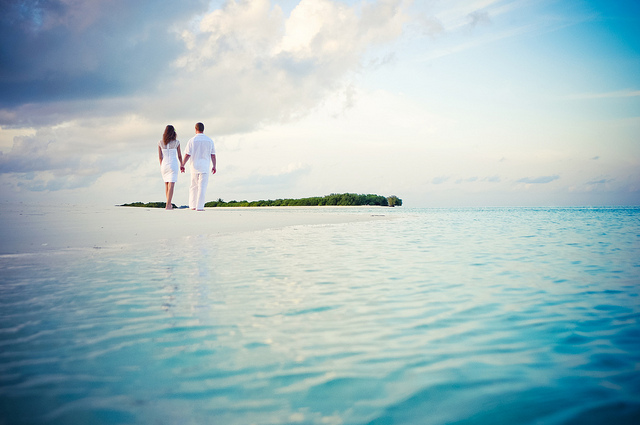I recently read a fascinating book by anthropologist Helen Fisher (if that name sounds familiar, it may be because you’ve watched one of her popular TED Talks). The book is called Why Him? Why Her?: How to Find and Keep Lasting Love and it’s a summary of Fisher’s research on brain chemistry and how hormones like testosterone and estrogen or neurotransmitters like dopamine or serotonin not only affect our personalities, but also affect who we choose as friends and life partners.
Her book includes a quiz so that you can discover which personality type you are (there are four: “Builder”, “Director”, “Negotiator” and “Explorer”), but I’ll save you the trouble and venture a guess that if you read this blog, you likely fall under the personality type of “Explorer”.
The “Explorer” Personality Type
The Explorer personality type, according to Fisher, is forever in search of the next big adventure. They are “intensely curious and unusually creative”, as well as spontaneous, impulsive, restless and energetic. They are adaptable, flexible, optimistic and fiercely independent. They can easily adapt to change and tend to be liberal in their political views. They crave new experiences and “although they are not necessarily fond of risk, they are willing to take risks to enjoy new, intense and exhilarating adventures”, writes Fisher.

Perhaps the author put it best when she described her twin sister, who has the Explorer personality type, as someone who can get excited when she gets a flat tire. This is because “Explorers” see adventure where other people often just see ordeals. “Not all Explorers get excited by a flat, of course,” she writes. “Some strike out for Mount Everest, the Amazon or another exotic realm; these people seek the thrills of physical adventure. Some teeter on the brink of bankruptcy as they invent the newest widget. Some gravitate to wild sex, gambling, alcohol or street drugs; they like being out of control. Some revel in bizarre music, exotic art, counterculture social activities or avant-garde ideas. And many simply collect stamps or antiques, stay at home and read, or take advantage of every theater, movie or musical event in town. Explorers seek adventures of the mind and senses.”
Dopamine: The driving force behind wanderlust
Dopamine is the neurotransmitter in the brain that makes us feel a rush a happiness when doing something we find pleasurable. It is also what floods are brain when we do something exciting or dangerous, like travel to a new country or jump out of an airplane. In an Explorer’s brain, this chemical is more abundant, which is why sensation-seeking personality types crave novelty and risk more than most. You can read more about this in an article I wrote for Matador Network: Are Risk-Takers a Dying Breed?
Interestingly enough, according to Fisher’s research, dopamine is also responsible for Explorers’ unique ability to focus intensely (when they are interested in a subject matter) as well their need for autonomy. Explorer’s crave independence and do not like to be restricted by rules and routine. Dopamine is also credited for travelers’ innate enthusiasm and optimism. People whose brains are rich in dopamine tend to view the world and the people in it in a more positive light than other personality types.

“Explorer” personality types value independence and novelty. photo credit: lost in pixels via photopin cc.
The craving for adventure is inherited
Studies have found that the gene DRD4, which is responsible for Explorer’s novelty-seeking tendencies, is inherited. Where or how you were raised apparently has little affect. As Helen Fisher put it, “Old or young; male or female; rich or poor; educated in the ivory tower or the mean streets; people who have inherited this gene in the dopamine system have an appetite for variety.”
Travelers are most attracted to other travelers
In 2005, Helen Fisher partnered with Match.com to study personality traits and how they influence our mate selection. In her research, Fisher attempted to answer the questions: Do opposites attract? Or do ‘birds of a feather flock together’? Are certain personality types more compatible than others? And if so, which ones?
Fisher gathered personality test results from 5 million American men and women and 1.8 million citizens from 34 other countries. What she was found was that while some personality types are best matched with their polar opposites (analytical and logical “Director” types are drawn to emotional and sensitive “Negotiator” types and visa versa, for example), the “Explorer” personality type is most often attracted to other Explorer types. In this instance, the “birds of a feather” adage holds true.
In fact, male Explorers preferred female explorers 41 percent of the time and female explorers preferred male explorers 46 percent of the time. Similar results were found with homosexual couples as well.
“Studies have shown that these dopamine-rich men and women marry people like themselves, not only in the United States but also in Germany and the Netherlands,” Fisher writes. This makes sense when you consider how easy the Explorer type becomes bored with monotony and routine. Other personality types, like “Builders”, crave routine, structure and tradition. Thus, an Explorer who marries a Builder would likely feel stifled and bored. Explorers value spontaneity, novelty and adventure and they’re going to seek out friends and partners who feel the same way. Or as Fisher put it, “Explorers live in the here-and-now. They travel fast. And if you can’t keep up, they go alone. Their motto: carpe diem—seize the day.”
Want to learn more? Read:
Scientists discover the existence of a wanderlust gene




[…] a bit of bad news for those looking to find someone to marry who loves to travel: Only 20% of the world’s population has the wanderlust gene, according to research cited in […]